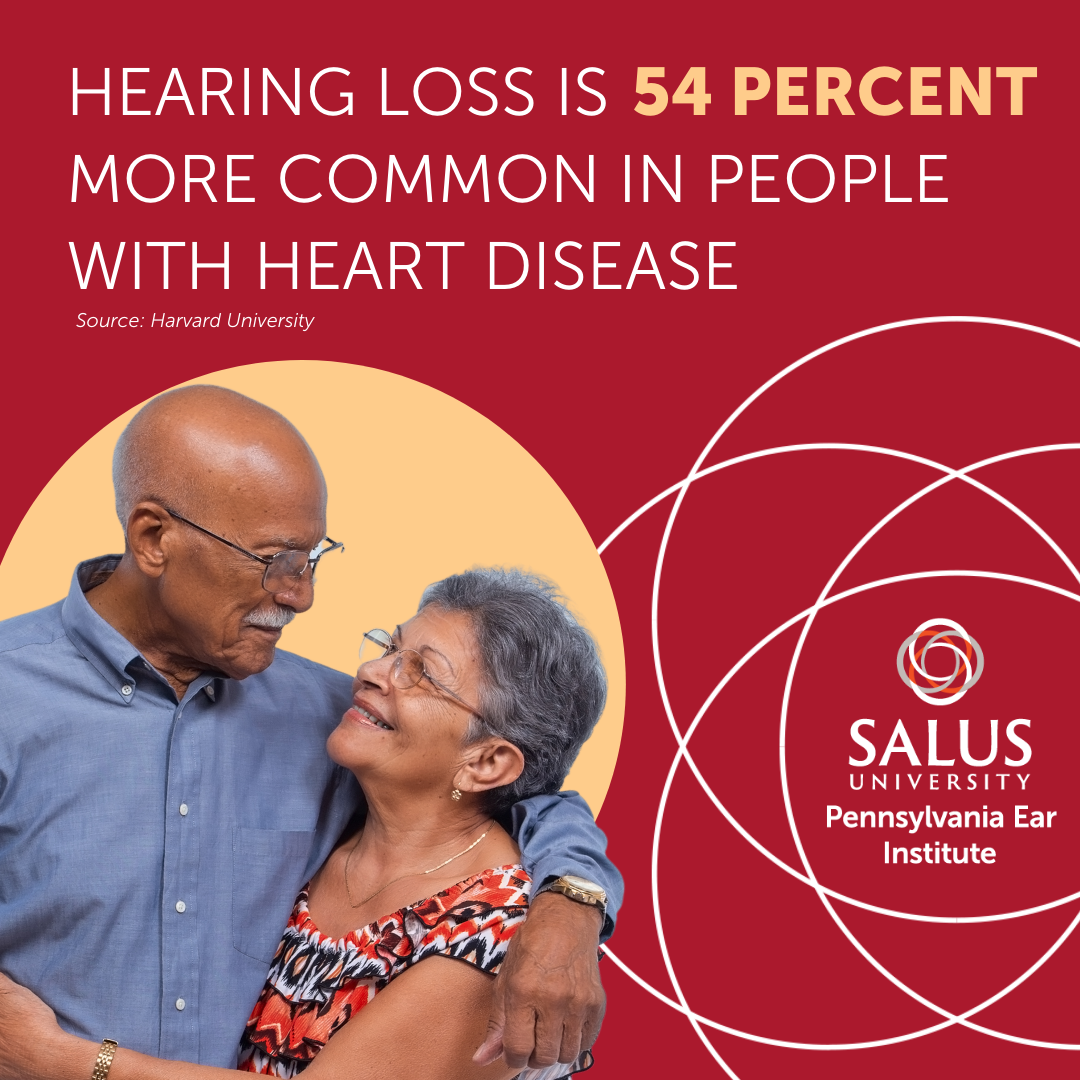The Connection Between Heart Health and Hearing Loss
 According to the American Heart Association, an estimated 92 million Americans have at least one form of cardiovascular disease.
According to the American Heart Association, an estimated 92 million Americans have at least one form of cardiovascular disease.
Heart disease is often caused by blood vessel damage from high cholesterol, arteriosclerosis and high blood pressure. Ruptures, spasms and blockages of major blood vessels can lead to a heart attack or stroke.
Heart disease is a leading cause of death for both men and women. Did you know that heart disease is also linked to hearing loss?
A study published in the American Journal of Audiology found that impaired cardiovascular health negatively affects both the peripheral and central auditory system, especially in older adults. A healthy cardiovascular system, researchers have discovered, is also healthy for the auditory system.
 Heart disease occurs as a result of plaque buildup, which leads to the hardening of the arteries (atherosclerosis). Hardened arteries can result in impaired blood flow and can cause damage to various organs of the body, including the delicate organs inside of our inner ears. Good circulation plays a role in maintaining good hearing health while inadequate blood flow and trauma to the blood vessels of the inner ear can contribute to hearing loss.
Heart disease occurs as a result of plaque buildup, which leads to the hardening of the arteries (atherosclerosis). Hardened arteries can result in impaired blood flow and can cause damage to various organs of the body, including the delicate organs inside of our inner ears. Good circulation plays a role in maintaining good hearing health while inadequate blood flow and trauma to the blood vessels of the inner ear can contribute to hearing loss.
The hair cells in your ear act as a conduit between noises and your brain, but these hairs need good circulation to do their job. When they do not receive the oxygen they need, they can be damaged. Unfortunately, these hair cells do not grow back, so hearing loss may become permanent.
A stroke can also cause hearing loss. Strokes occur when the blood supply to the brain is blocked depriving the brain of much-needed oxygen. If a stroke occurs in the areas of the brain responsible for hearing and balance, the stroke may cause hearing impairment, dizziness and other vestibular/balance changes.

This does not mean there is nothing you can do. A healthy heart can lead to healthy hearing. Here are several ways to improve heart health.
Live smoke-free: Quitting smoking can have immediate heart health benefits. Research also shows that both smokers and passive smokers are more likely to suffer from hearing loss.
Eat a healthy, balanced diet: Incorporating more healthy foods into your diet is just as important as cutting back on unhealthy ones. Add more fruits and veggies, whole grains, plant proteins and fiber. Limit unhealthy fats, alcohol and foods high in sodium and sugar.
 Exercise regularly: The American Heart Association recommends adults engage in at least an hour and a half of moderate-intensity aerobic activity, such as brisk walking, each week. Increasing physical activity can increase blood flow to the ears, which may decrease your risk for hearing loss.
Exercise regularly: The American Heart Association recommends adults engage in at least an hour and a half of moderate-intensity aerobic activity, such as brisk walking, each week. Increasing physical activity can increase blood flow to the ears, which may decrease your risk for hearing loss.
It’s recommended those who suffer from heart disease or any of its risk factors should receive a hearing evaluation annually. Similar to annual eye exams, it’s important to make a habit of scheduling an appointment for a routine hearing exam every year.
The Pennsylvania Ear Institute (PEI) offers comprehensive hearing evaluations and individualized treatment plan options. To request an appointment with the Pennsylvania Ear Institute click here or call 215.780.3180.